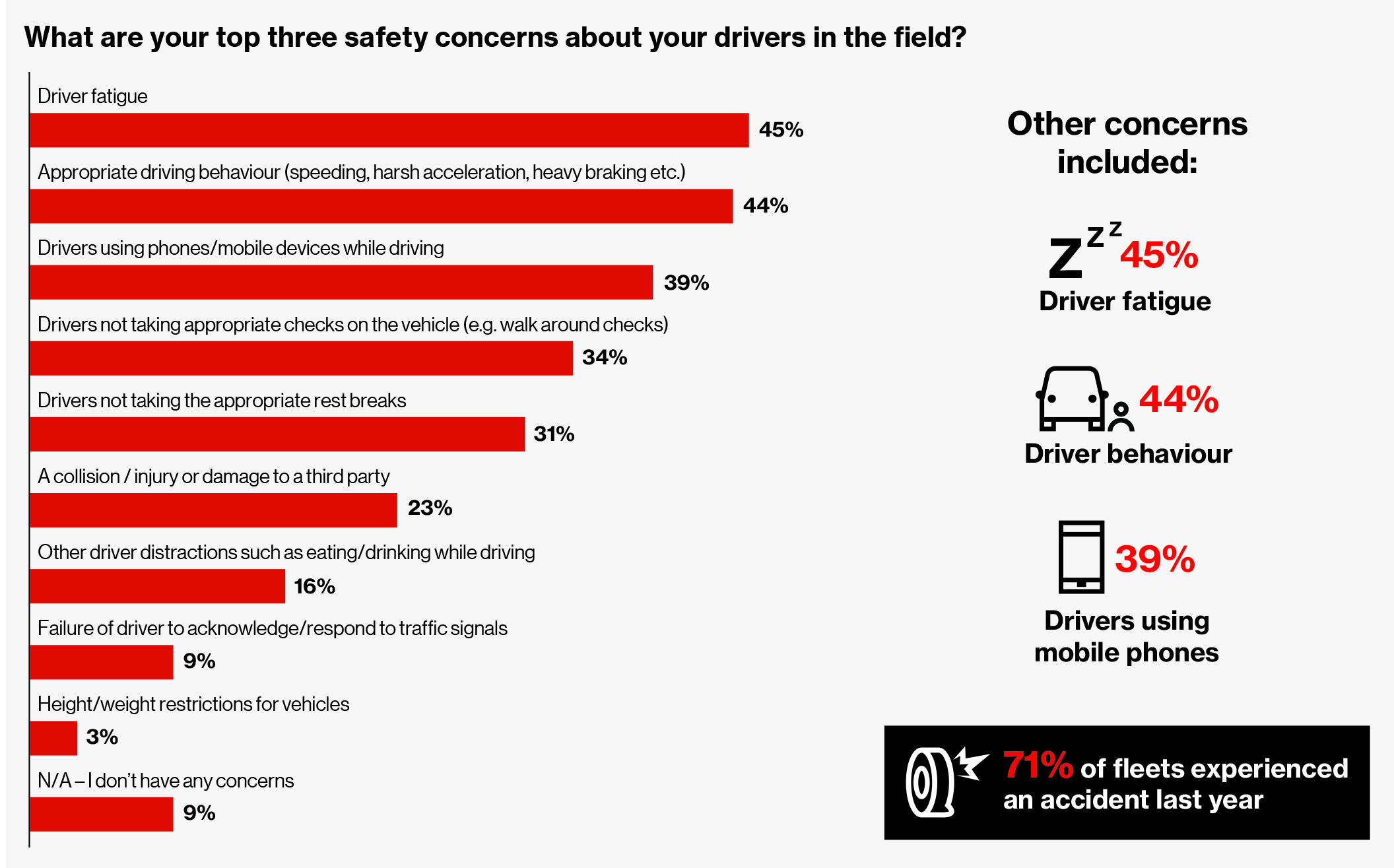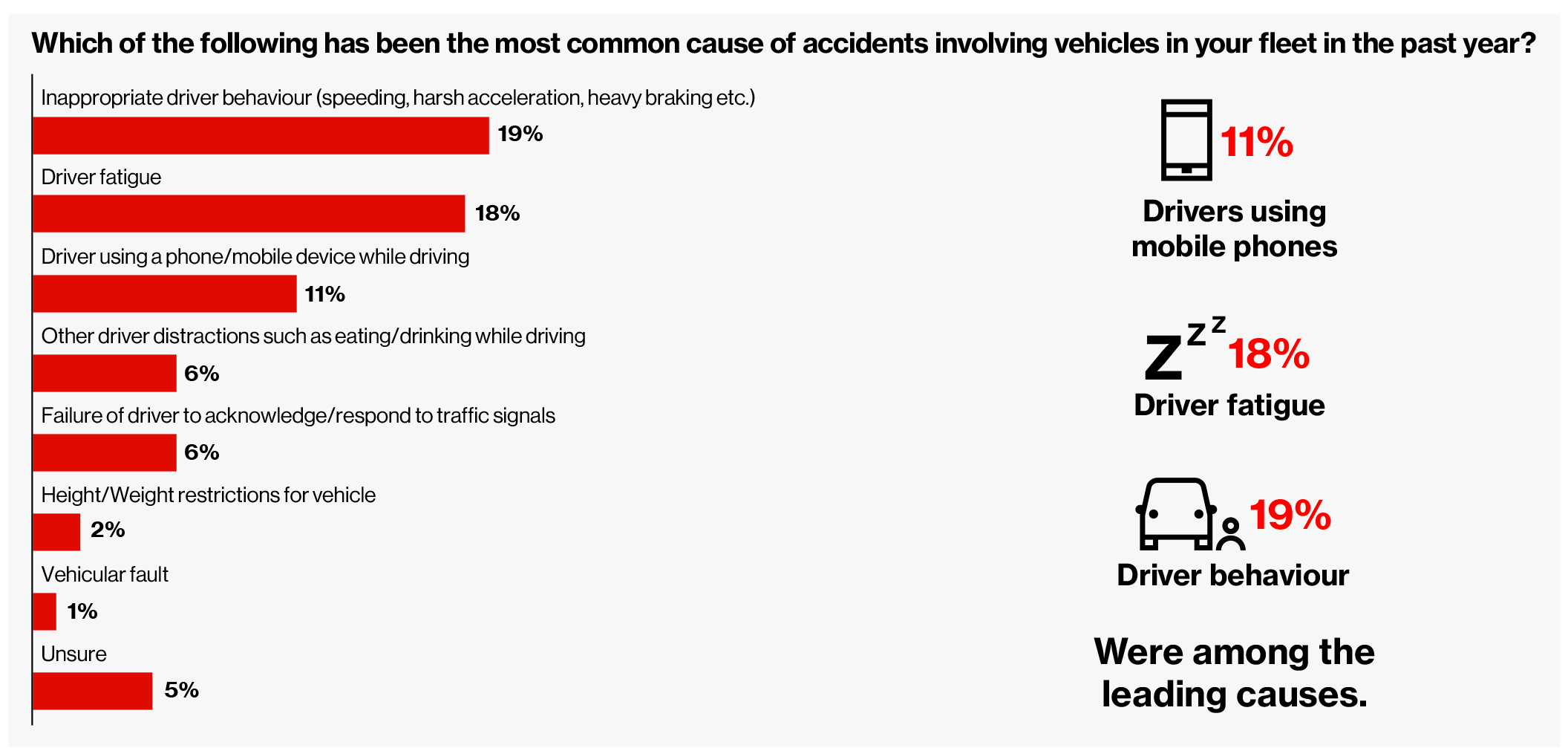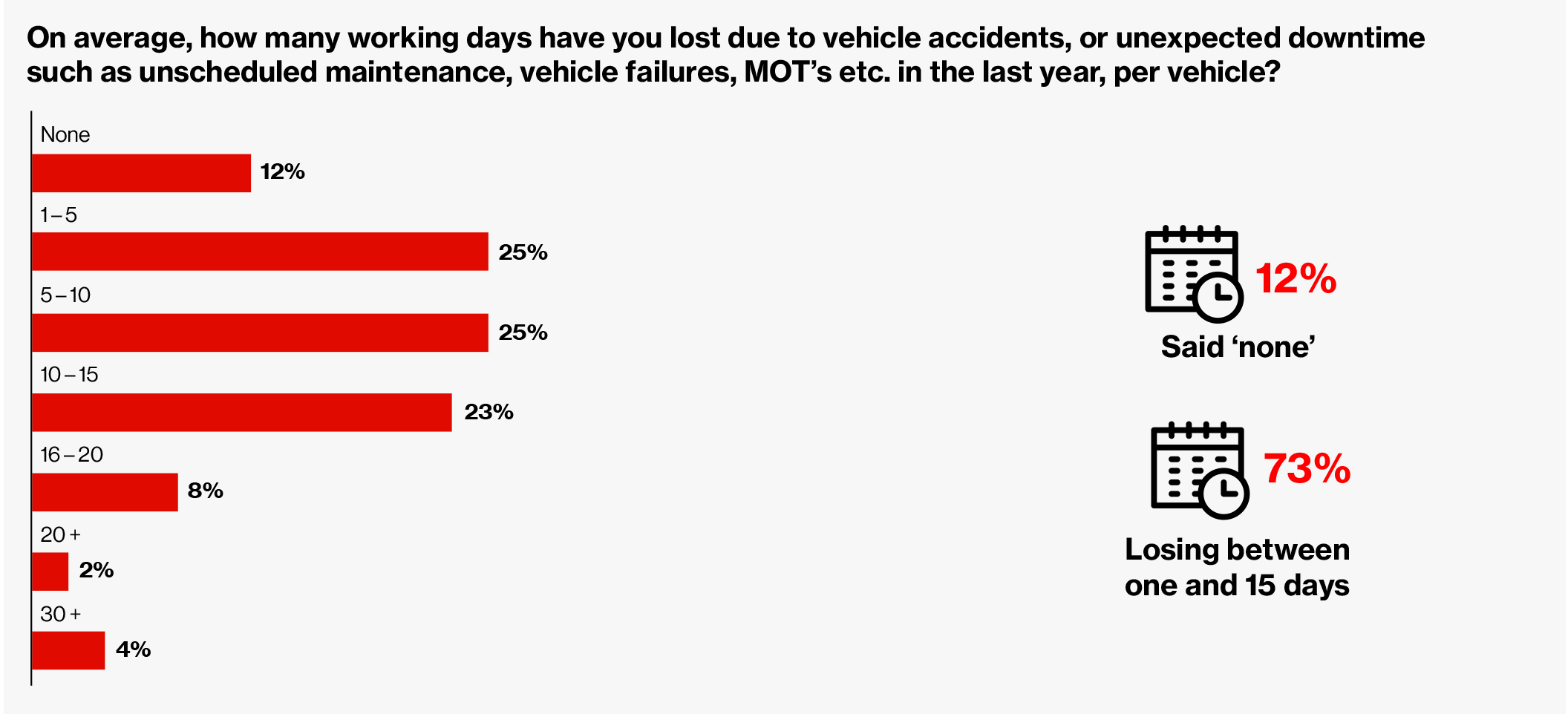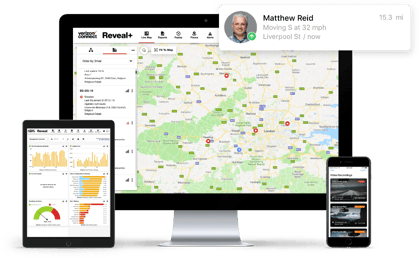9 Secrets to Reducing your Fleet Expenses
As a fleet owner, your day-to-day costs can quickly add up. What you don’t know is there are further hidden, expensive...
Read more
Many road users do not consider the impact of an accident before one occurs. For fleet-reliant business owners, however, road accidents are a constant concern.
With multiple drivers and vehicles on the road, even small accidents can lead to hefty repair bills, extended vehicle downtime, scheduling issues and much more. The list goes on and on.
Aside from the safety of drivers and other road users, perhaps the biggest cause for concern is financial. A vehicle off the road for any period is money lost. And that’s on top of the cost of repair and any potential damage to company reputation caused by the incident.
Such is the potential negative impact of accidents that when asked ‘What are your top three safety concerns about your drivers in the field?’ as part of 2019’s Verizon Connect Fleet Manager Insight Report, almost a quarter cited ‘a collision / injury or damage to a third party’:

Fleet managers and fleet reliant business owners are right to worry. When asked:

Such incidents have been costly to the nation’s fleet-reliant businesses over the past year:

On top of costly vehicle downtime, accidents also consume the fleet manager’s valuable time, with 56% reporting to spend anywhere between one hour and six hours per week assessing incidents and accidents.
While we share the road, there’s no way to completely eradicate the risk of accidents. There is, however, plenty that can be done to reduce the risk.
GPS fleet management technology can help to protect against many of the leading causes of fleet accidents.
One of the most effective ways to help create a safer fleet is to introduce a driver scorecard system. The driver scorecard uses data collected from the road, such as instances of speeding and heavy braking, to give drivers a safety score. The safer the driver, the higher the score.
Driver scorecards can be used to rank every driver in your fleet, allowing you to reward the top performers and incentivise others to improve.
For a more proactive approach, you could implement audible in-vehicle alerts to sound whenever an unsafe behaviour occurs. This keeps safety at the forefront of your drivers’ minds and allows them to almost instantly correct unsafe behaviour.
A GPS solution can also help to remove common distractions. With routing and job information sent directly to a driver’s sat-nav or similar device, there’s no need for updates via phone call or text message.
Take the first steps towards a safer fleet today.
Tags: Safety




Find out how our platform gives you the visibility you need to get more done.
As a fleet owner, your day-to-day costs can quickly add up. What you don’t know is there are further hidden, expensive...
Read moreVerizon Connect Reveal tracks the fleet data that can have a big impact on your business. These are things like where...
Read moreAt Verizon Connect, we can only provide the highest possible level of service to fleet managers and business owners by...
Read moreReveal tracks the fleet data that can have a big impact on your business. These are things like where your vehicles are...
Read more